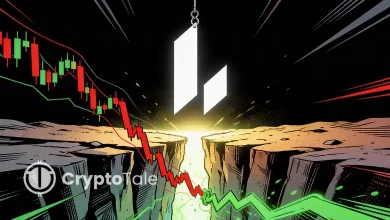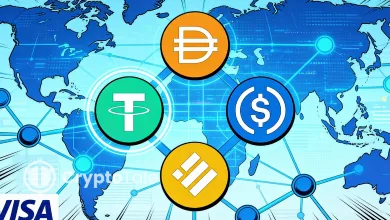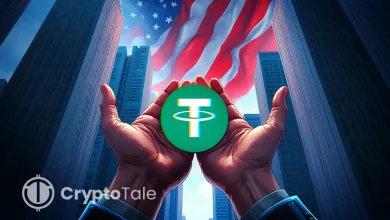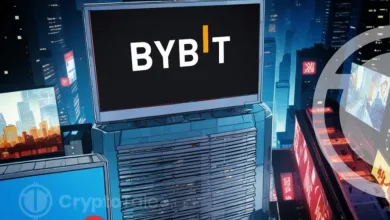DeFi Development Expands Solana Holdings, Boosts Staking Strategy
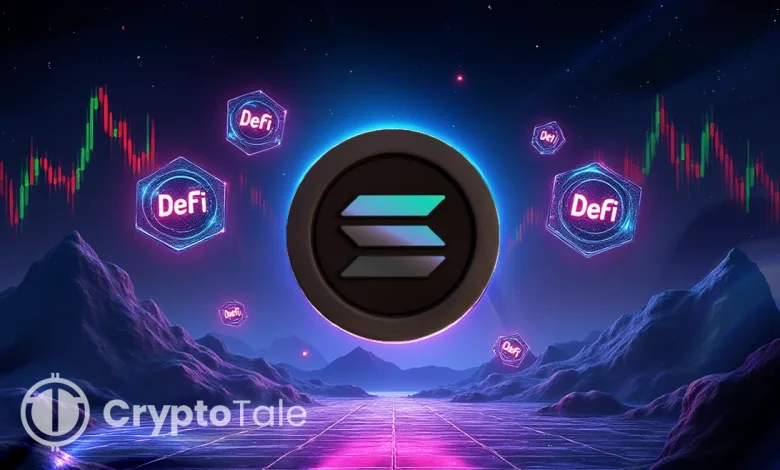
- DeFi Development expands Solana holdings to nearly $500M, boosting institutional staking.
- The firm stakes SOL across validators, supporting decentralization and yield generation.
- Corporate staking links equity valuation with Solana’s on-chain performance dynamics.
DeFi Development Corp. has made another major Solana acquisition, underscoring how public firms now structure treasury and staking strategies. The company’s holdings have grown to nearly $500 million, with plans to spread tokens across validator nodes. The approach highlights how institutional adoption influences validator decentralization, token liquidity, and corporate valuation.
Expanding Solana Holdings
DeFi Development recently purchased 62,745 SOL, worth $14.6 million at current market prices, bringing its total holdings to above 2 million tokens, worth $500 million. The company tracks performance with a “SOL per Share” metric.
Based on 25 million shares outstanding, that figure stands at about $19.44. Factoring in pre-paid warrants issued during recent financing rounds, the fully diluted share count rises to nearly 31.5 million.
The DeFi Development has devoted itself to long-term Solana token holding, and executives affirmed that new tokens will be secured with validators. It comprises the in-house Solana validator infrastructure of the company.
The idea of the DeFi Development to distribute stakes in many nodes aims to obtain the highest yield while contributing to the network’s decentralization. The practice also indicates the way in which staking frameworks are being used by public companies to support blockchain ecosystems.
Position in the Solana Ecosystem
The DeFi Development was launched by ex-employees of Kraken earlier this year and has quickly established itself among Solana’s largest institutional holders. The firm joins Upexi and Sharps in operating digital asset treasuries built around Solana. Forward Industries, supported by Galaxy Digital, Jump Crypto, and Multicoin Capital, ranks as the largest Solana-focused treasury.
Beyond treasury management, DeFi Development runs validator services for institutional partners, which include managing nodes for exchange clients such as Kraken. The company’s role within the validator ecosystem links its financial strategy directly to Solana’s network operations.
Last month, DeFi Development completed the acquisition of a London-listed company. The move created what the firm described as the first Solana-focused public treasury vehicle in the United Kingdom. Executives indicated that additional equity financing will be directed into further SOL purchases. They stated that the SOL per share figure will remain above pre-financing levels of 0.0675, even after warrant impacts.
The company also operates an AI-powered platform serving real estate professionals. The platform attracts more than one million users annually, offering data and software subscriptions to property owners and developers.
Related: DeFi Development Corp. Expands Solana with DFDV UK Launch
Broader Implications
The strategy of DeFi Development demonstrates the development of digital asset treasuries, which go beyond speculative purchasing to an organized incorporation of tokens in corporate finance. The firm accumulation of Solana portrays the belief in the network throughput, scalability, and decentralized applications.
Institutional staking on this scale has potential effects on Solana’s ecosystem. Large token positions may influence validator distributions, network stability, and liquidity across exchanges. Researchers are watching how concentrated holdings balance against decentralization goals.
To shareholders, the correlation between the SOL reserves and equity value raises important questions. Corporate valuation models now have to take into account blockchain-based assets that can yield via staking. Such dynamics relate on-chain real-time performance to share price movements.
The company’s consistent Solana expansion represents a broader change in institutional involvement with Web3. Not only are public firms holding tokens, but they are also shaping validator ecosystems, influencing long-term governance and adoption patterns within Layer-1 networks.

